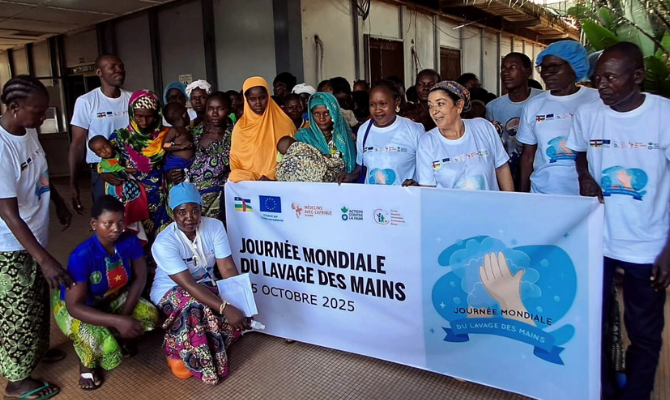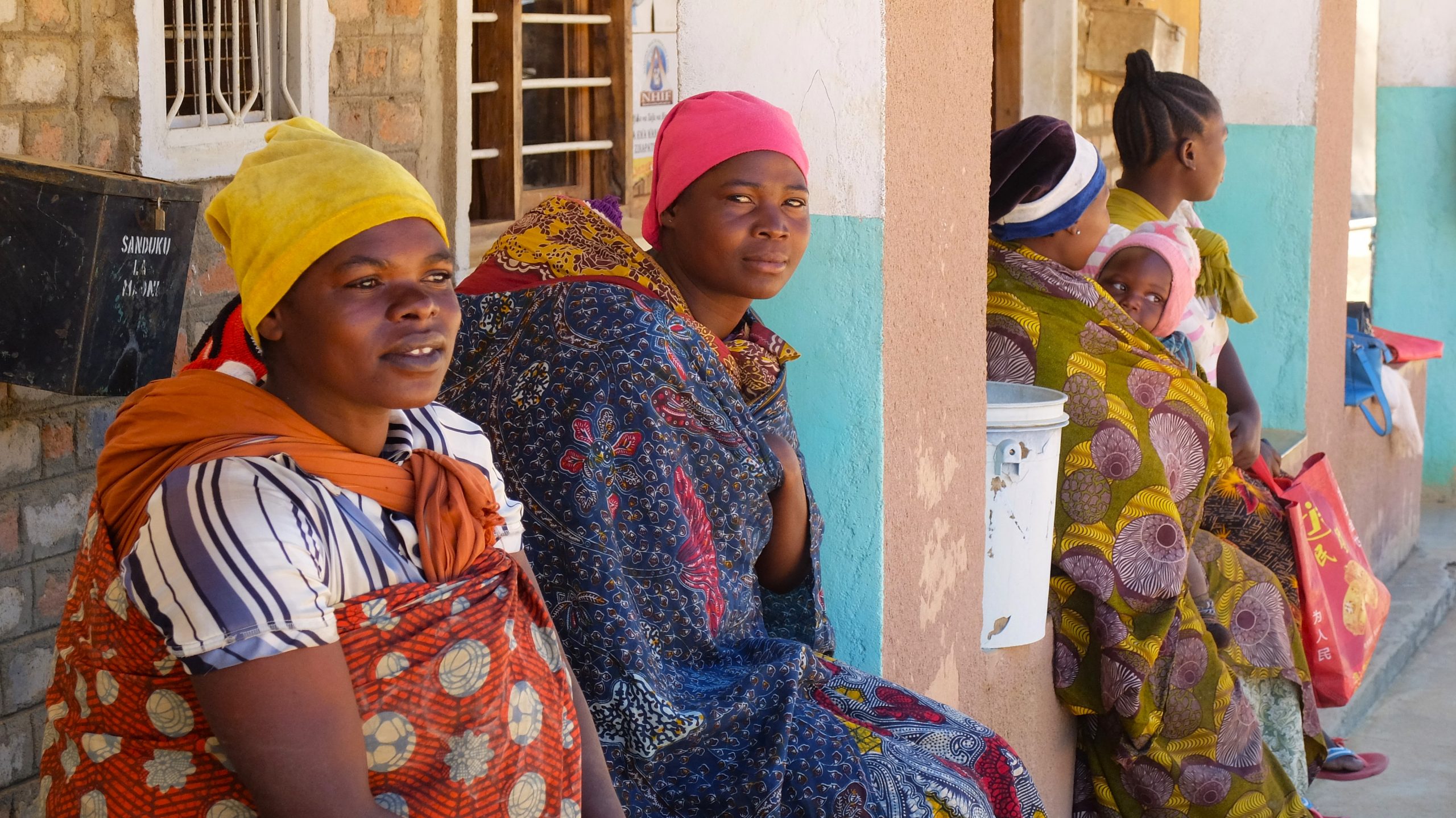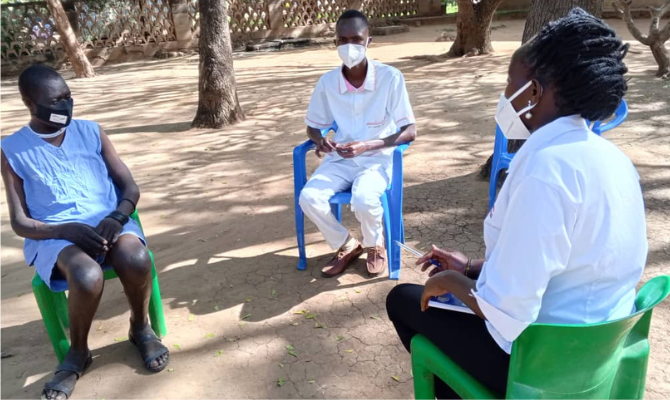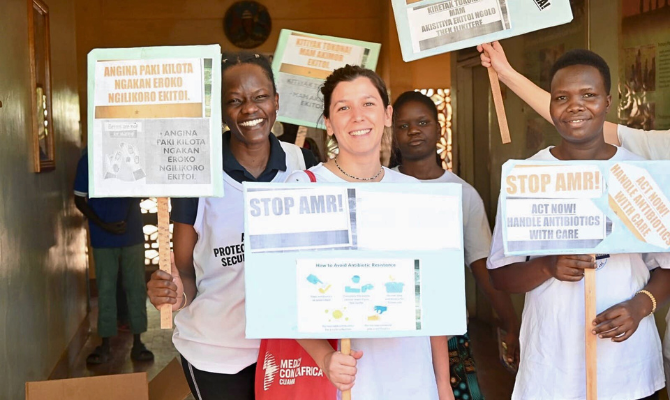When and why should we wash our hands? What product is recommended for an adequate wash? Why is handwashing called the ‘protection of communities’?
These were just some of the questions in the quiz answered by mothers, fathers, and relatives of children admitted to the Complexe Hospitalier Universitaire Pédiatrique (Chupb) in Bangui, Central African Republic, during Global Handwashing Day on October 15. Prizes for correct answers included a metal handwashing device, 20-litre plastic buckets, a 10-litre basin, and soap.
“For the first time, I have become aware that hand hygiene is the best means of preventing infections. This new awareness is very important for the well-being of our family and, especially, our children,” says Diane, one of the participating mothers. “From now on, I will also tell those around me how fundamental it is to wash hands with clean water and soap, before and after eating, before breastfeeding, and after changing babies’ nappies.” “Only if you know and understand the importance of handwashing will you be able to practice it and pass it on to others,” added Walter, the father of one of the hospitalized children.
Handwashing is a simple, seemingly trivial practice, but one that can literally save lives, particularly in fragile contexts like the Central African Republic and in critical environments such as hospitals. As indicated by the World Health Organization (WHO), handwashing is the most effective tool to reduce the spread of pathogens and prevent the transmission of infections, drastically reducing the risk of respiratory and intestinal infections, which are among the main causes of child mortality. However, in limited-resource settings, one inevitably has to deal with the difficulty of accessing water and soap, the lack of adequate sanitation facilities, poor awareness, or the incorrect execution of good practices.
This is why in Bangui, as part of the project “Support for Pediatric and Nutritional Assistance, Resilience, and Governance of the Chupb,” funded by the European Union and implemented together with Action Against Hunger (ACF), specific awareness activities were organized. These activities included practical demonstrations and videos to actively inform and promote good hygiene practices, starting with the simplest one.
Hospital staff were also actively involved, as adhering to hygiene practices is essential to ensure patient safety and quality of care. All operators were distributed 400 bottles of alcohol-based hand sanitizer solution.
Hand hygiene is an act of care—a gesture that protects us and those around us.





